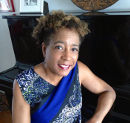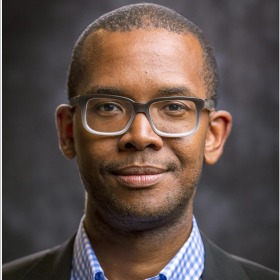Deborah Gray White is the Board of Governors Professor of History and Professor of Women's and Gender Studies at Rutgers University. During her twenty-six years at Rutgers, she has not only been a teacher but the codirector of "The Black Atlantic: Race, Nation and Gender" project at the Rutgers Center for Historical Analysis (1997-99), a research professor at the Rutgers Institute for Research on Women (1999-2000), and chair of the history department (2000-03).
In November 2015, Rutgers University's Chancellor Edwards created the Committee on Enslaved and Disenfranchised Populations in Rutgers History and named White as Chair. The Committee traced the university’s early history and its relationship with local African-American and Native-American communities.With active participation from students at both the undergraduate and graduate levels, faculty, staff, local historians, and librarians, the committee has conducted painstaking research to reexamine the university’s roots, including locating and studying the wills of Rutgers’ founders and benefactors and other archived documents. The result was the Scarlet and Black Project, which has produced two volumes related to Black and Native people's interaction with the university.
Professor White is the author of Ar'n't I A Woman? Female Slaves in the Plantation South (Norton, 1985). A second edition, with a new introduction and additional chapter, was issued in 1999. In anticipation of its anniversary, the Southern Historical Association celebrated it at its 2003 conference; and in 2005 a conference entitled "Slave Women's Lives: Twenty Years of 'Ar'n't I A Woman?' and More" was held at the Huntington Institute in California, with the proceedings published in the 2007 Winter issue of the Journal of African American Studies; the papers presented in honor of it at the Berkshire Conference on the History of Women were published in the Journal of Women's History in July 2007.
Her other monographs are Let My People Go: African-Americans, 1804-1860 (Oxford UP, 1996) and Too Heavy a Load: Black Women in Defense of Themselves, 1894-1994 (Norton, 1999). Professor Gray White contributed a number of articles to the Journal of American History, Journal of Caribbean Studies, Journal of Family History, and Journal of African American History. She is also the editor of Telling Histories: Black Women Historian in the Ivory Tower (University of North Carolina Press, 2008), and, with Darlene Clark Hine and others, Black Women in America: An Historical Encyclopedia (Oxford UP, 2004). She received fellowships from the Guggenheim Foundation, the Woodrow Wilson International Center for Scholars Fellowship, the ACLS, the American Association of University Women, and the National Research Council / Ford Foundation.
Selected Publications
-
Telling Histories: Black Women Historians in the Ivory Tower, ed. (Chapel Hill: University of North Carolina Press, forthcoming 2008)
-
Too Heavy A Load: Black Women in Defense of Themselves, 1894-1994 (New York: W.W. Norton, 1999)
-
Let My People Go: African American 1800-1865 (New York: Oxford University Press, 1999)
-
Ar’n’t I A Woman? Female Slaves in the Plantation South (New York: W.W. Norton, 1985, 1999 [2nd ed])
In progress:
“’Can’t We All Just Get Along’: The Cultural Awakenings of the 1990’s” - This book recounts the history of the 1990’s through the lens of the decade’s mass marches and gatherings. The Million Man March, the Million Woman March, the Promise Keepers, the LGBT Marches, and the Million Mom March tell us a lot about sexuality, and the state of American race, class, and gender relations. Separately, and in conversation with each other, they allow for an in-depth analysis of subjects like coalition building, intraracial and interracial faith, marriage and family relationships. In conversation with the past they speak to the continuing processes of millennialism and post-modernism. As such they are powerfully revelatory about American identity (ies) at the turn of the twenty-first century.








